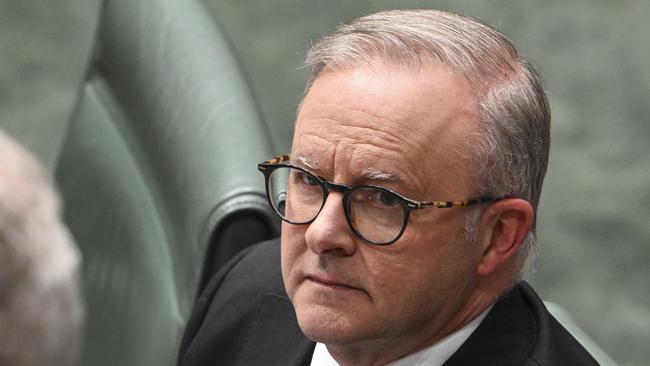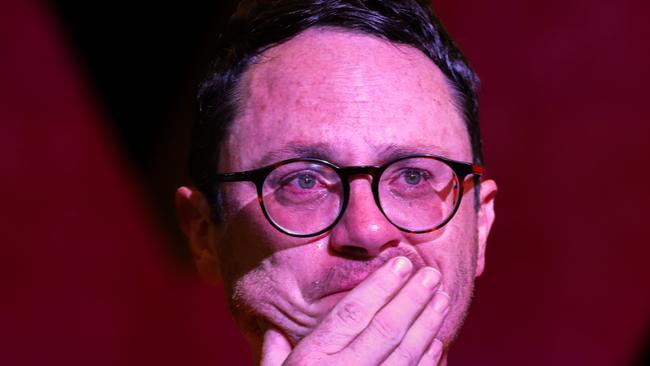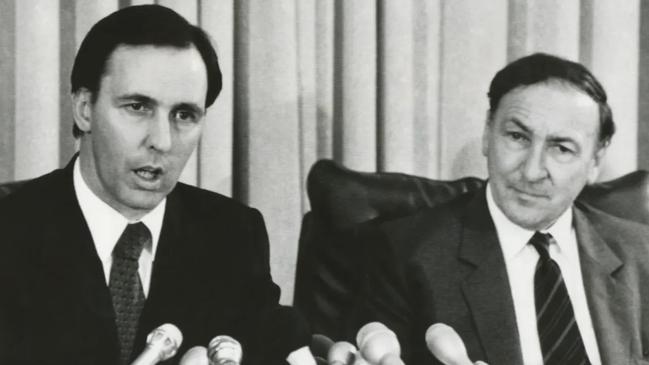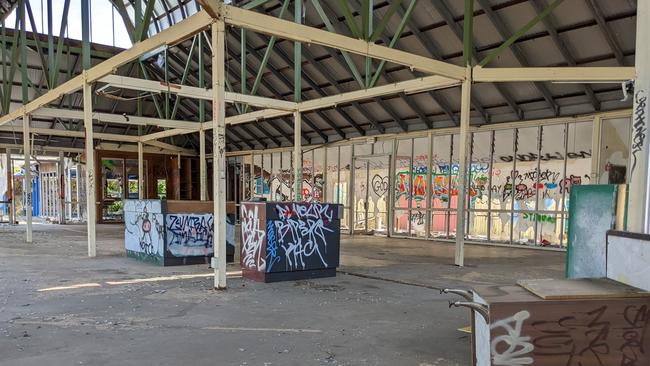More Groucho Marx than Karl Marx: Anthony Albanese a joke when it comes to fixing the economy
The Prime Minister’s bash the boss politics may give Labor but a temporary win but will show him up as a loser in the fight to stay a wealthy nation, James Morrow writes.

Opinion
Don't miss out on the headlines from Opinion. Followed categories will be added to My News.
Anthony Albanese clearly believes that his turn back to the left – smashing high income earners with Stage 3 tax changes and smashing employers with new industrial relations rules – is in tune with a fundamental shift in Australian politics.
On the face of it, the polls seem to back him in.
The Prime Minister hasn’t paid any real price for the income tax flip flop, daring Peter Dutton to vote against a tax cut “for every single Australian taxpayer” even as he snatches back thousands from anyone on more than $146,000 a year.
At the same time, new French-style right to disconnect rules have also landed well with, tellingly, Greens MPs sending out media releases touting their popularity on Tuesday.
The man who in 2022 portrayed himself as a safe and moderate economic manager has gone all-in bashing bosses and the big end of town.
In doing so, the Prime Minister has revealed himself as more Groucho Marx than Karl: “Those are my principles and, if you don’t like them, well, I have others.”

This has the potential to be a massive mistake, both politically and for Australia.
Time and time again, commentators have declared the end of Australia’s fundamentally centre-right politics only to be caught out, most recently in the wake of the failed Voice campaign.
And while Albanese’s political bet has, for the moment, paid off, it is also putting the rest of the Australian economy at grave risk of serious long-term damage.

Sure, we may not be in a technical recession, inflation is moderating and employment remains strong.
The threat of multiple interest rate rises has, for the moment, passed.
But household income, real wages and productivity are all going backwards, while failure to do anything about the tax system means an increasingly bloated government will continue to rely on the lazy tide of bracket creep.
Instead of moving to reform and actually grow the economy in the tradition of Hawke and Keating, the government is pushing Whitlam-era bash-the-boss rhetoric and putting handbrakes on business.
But the government, and many of its media enablers, are misreading the room if they think that Labor and its effective junior partners in the Greens are on to a winner with this new class warfare.

People are anxious, absolutely.
Particularly in already crowded cities like Sydney, people are looking to blame others for traffic and expensive housing and a million other houses.
This explains the regular two-minute hates on Twitter (or X, if you will) against Balmain and Fitzroy “boomers” and NIMBY councils who are supposedly preventing benevolent developers from throwing up tons of affordable housing.
But deeper down, people sense that a country – their country – that has more or less dodged recessions for 30 years is suddenly faced with the prospect of not just a few quarters of backwards growth but a sustained fall in living standards.
People who grew up with the expectation of a quarter acre block (or California bungalow or inner city terrace) are now being told they will have to leverage themselves to the hilt for a train-line apartment that may or may not come with bankruptcy-inducing defects.

And while no one ever voted for it (now there would be a referendum) both sides of politics have long adhered, more or less, to a Big Australia immigration policy.
Huge arrivals keep overall GDP in the black, depress wages and push up property prices – though whether these are good or bad things depends on whether you’re a suburban commuter on the one hand or a politician or property developer on the other.
Those big numbers will also impact social cohesion in ways we cannot even begin to predict, though it surely sends an odd message to those who came here seeking a better life to have their children go to school and learn how awful Australia Day is.
Meanwhile, we don’t yet know the full details of the Albanese Government’s IR deal but we do know that unions and troublemakers are about to have a whole new set of ways to turn the screws on productive enterprises, particularly small and medium-sized ones.
And this is before we get to the nightmare of the rushed renewables transition, which promises lower energy prices but never seems to deliver, and which in the process is forcing the country to deindustrialise.
A devastating report out of Victoria in The Australian on Tuesday showed the direction this is heading.
There, the Government’s anti-gas policies, taxes, regulation and the cost of doing business generally led to a net decrease of more than 7600 businesses in the last financial year in that state. This, rather than real reform, is what the Albanese Government’s new policy settings will replicate nationally, making them so dangerous.
To return to Keating, then as now Australia is in danger of becoming what he called a banana republic.
“If this government cannot get the adjustment, get manufacturing going again, and keep moderate wage outcomes and a sensible economic policy, then Australia is basically done for,” Keating told John Laws in 1986.
“We will end up being a third-rate economy ... a banana republic.”
Hard choices and real reform made sure that didn’t happen then.
Now, though, it’s looking like back to the future.





